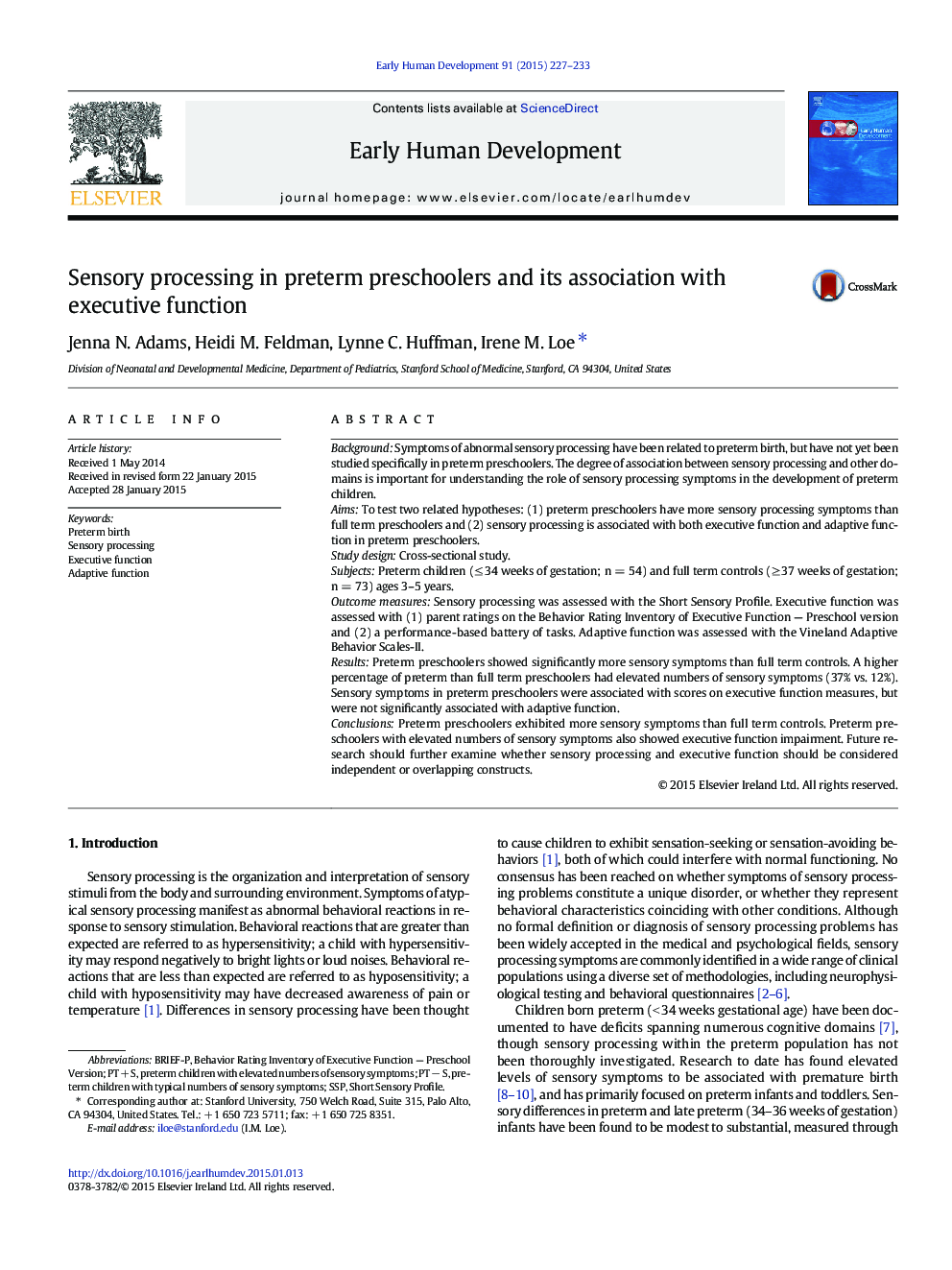| Article ID | Journal | Published Year | Pages | File Type |
|---|---|---|---|---|
| 3917006 | Early Human Development | 2015 | 7 Pages |
•Preterm preschoolers have more sensory symptoms than full term controls.•Sensory symptoms in preterm preschoolers are associated with executive function.•Sensory symptoms in preterm preschoolers are not associated with adaptive function.•Research should examine the overlap between sensory processing and executive function.
BackgroundSymptoms of abnormal sensory processing have been related to preterm birth, but have not yet been studied specifically in preterm preschoolers. The degree of association between sensory processing and other domains is important for understanding the role of sensory processing symptoms in the development of preterm children.AimsTo test two related hypotheses: (1) preterm preschoolers have more sensory processing symptoms than full term preschoolers and (2) sensory processing is associated with both executive function and adaptive function in preterm preschoolers.Study designCross-sectional study.SubjectsPreterm children (≤ 34 weeks of gestation; n = 54) and full term controls (≥ 37 weeks of gestation; n = 73) ages 3–5 years.Outcome measuresSensory processing was assessed with the Short Sensory Profile. Executive function was assessed with (1) parent ratings on the Behavior Rating Inventory of Executive Function — Preschool version and (2) a performance-based battery of tasks. Adaptive function was assessed with the Vineland Adaptive Behavior Scales-II.ResultsPreterm preschoolers showed significantly more sensory symptoms than full term controls. A higher percentage of preterm than full term preschoolers had elevated numbers of sensory symptoms (37% vs. 12%). Sensory symptoms in preterm preschoolers were associated with scores on executive function measures, but were not significantly associated with adaptive function.ConclusionsPreterm preschoolers exhibited more sensory symptoms than full term controls. Preterm preschoolers with elevated numbers of sensory symptoms also showed executive function impairment. Future research should further examine whether sensory processing and executive function should be considered independent or overlapping constructs.
